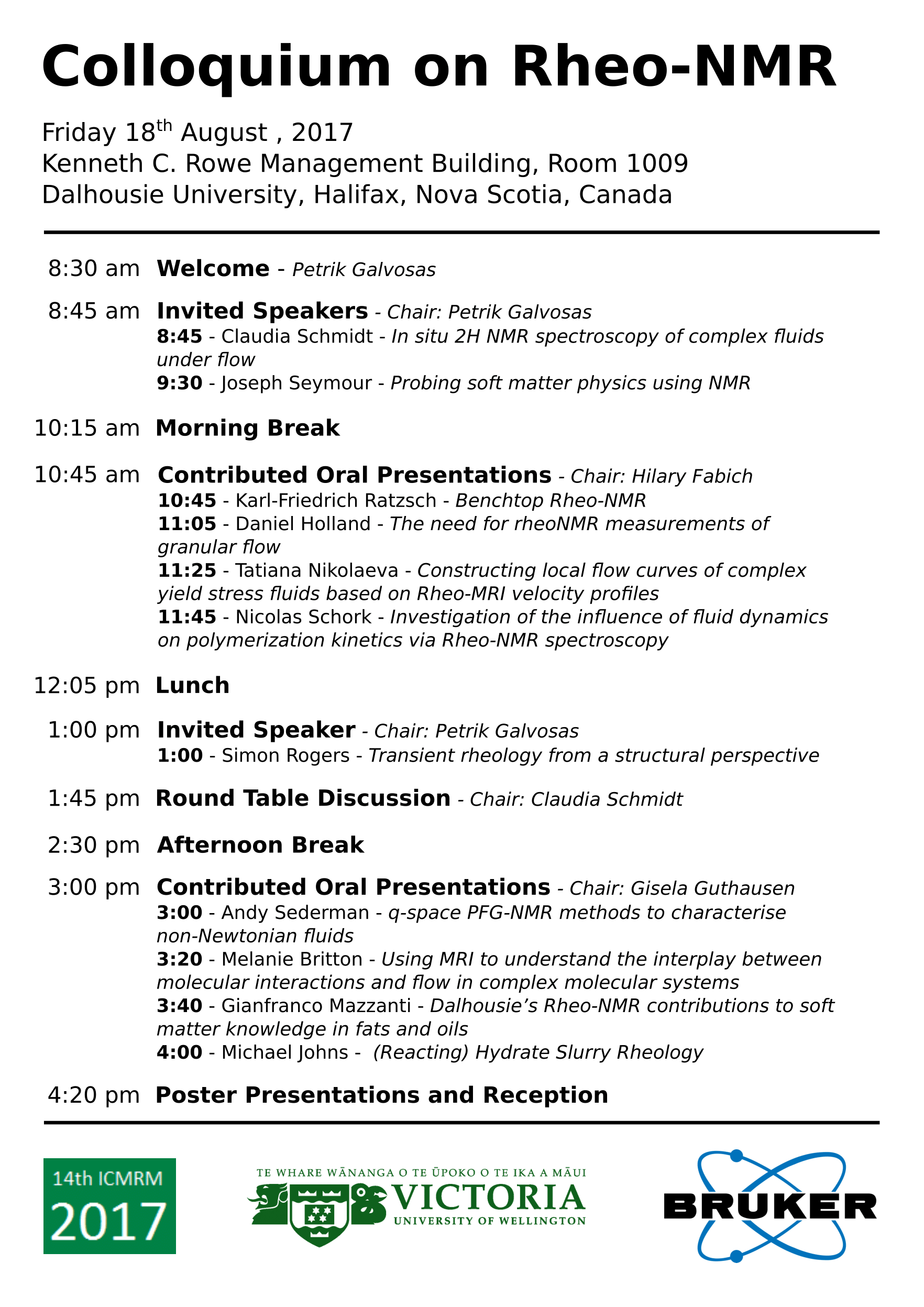Colloquium on Rheo-NMR
What: Colloquium on Rheo-NMR
When: August 18th, 2017 (following ICMRM 2017)
Where: Halifax, Nova Scotia, Canada
We are excited to announce the 2017 Colloquium on Rheo-NMR. This meeting will take place on Friday the 18th of August, immediately following the International Conference on Magnetic Resonance Microscopy (ICMRM), in Halifax, Nova Scotia, Canada. Accommodation is available through the Dalhousie University residence system. The window for ICMRM 2017 booking has now been extended by one day to accommodate those attending the satellite meeting. See the Accommodation tab on the ICMRM 2017 website.
Book of Abstracts
Download Schedule and Book of Rheo-NMR Abstracts here.
Rheo-NMR Schedule

This one day event will be offered free of charge and will focus on magnetic resonance techniques used to study materials under flow and deformation, including (but not limited to):
- High and low field NMR/MRI hardware
- NMR methodology (spectroscopy, velocimetry, etc.)
- Rheometry techniques and experimental design
- Applications and case studies
To register or submit an abstract, please contact either Tim Brox (tim.brox@vuw.ac.nz) or Petrik Galvosas (petrik.galvosas@vuw.ac.nz).
The 2017 Colloquium on Rheo-NMR is made possible by the generous support of Victoria University of Wellington, the ICMRM 2017 and Bruker Biospin GmbH.
The flyer can be downloaded here
Invited Speakers
Professor Dr. Claudia Schmidt
Paderborn University
Claudia Schmidt's research group focuses on using NMR methods to investigate nano- and
microstructured surfactant systems, liquid crystals, and polymers.
Professor Joseph Seymour
Montana State University
Joseph Seymour and colleagues use magnetic resonance microscopy to study transport phenomena
and the dynamic behaviour of soft materials such as glass and gel transitions.
Assistant Professor Simon Rogers
University of Illinois
The soft matter research group of Simon Rogers at the University of Illinois uses a
variety of experimental and computational tools to understand and model advanced colloidal, polymeric, and self-assembled materials for biomedical, energy, and
environment applications.
